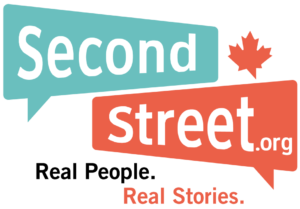TRUE NORTH COLUMN – Incentives for patients could ease health care crisis

Canada’s health care system is in crisis. While much of the discussion around this is rightfully centered on how governments can improve the services provided, policymakers would be wise to also think about how to ease the demand that patients impose on the system.
Simply put, if Canadians lived healthier lives, the health care system could focus more of its resources on treating those with unavoidable health conditions.
Many of the lifestyle decisions that Canadians make – what they eat, how frequently they exercise, and so on – can lead to diseases and adverse health conditions if poor choices are made. This in turn increases demand for health services. Consider that the Public Health Agency of Canada has indicated that if individuals eliminated risk factors such as unhealthy eating and physical inactivity, 80% of premature heart disease and type 2 diabetes cases, and 40% of cancers could be prevented.
Similarly, the Chronic Disease Prevention Alliance of Canada (CDPAC) estimated that in 2015, the cost of treating diet-related diseases in Canada was approximately $26 billion. For perspective, last year, provincial governments in Canada spent $218 billion on health care. Billions more could be saved if Canadians exercised more frequently.
So how can governments encourage healthy living, without micromanaging people’s lives? In a normal insurance model, those who pose higher risks pay higher premiums and have a financial deterrent to making unhealthy choices. This is why drivers who have had many speeding tickets typically pay more for car insurance.
In Canada, it’s probably fair to say that no political party would introduce higher premiums in health care based on risk. However, the opposite of higher premiums could be an option – incentives. New SecondStreet.org research shows that financial incentives have been effective in improving patient health in several studies and private sector models.
In the U.S. for example, grocery store chain Safeway improved employee health by implementing a rewards program based on financial incentives. For performing well on health indicator tests (eg. blood pressure, body weight, cholesterol etc.) employees received discounts on their insurance premiums. According to the former CEO of Safeway, Steven Burd, an employee could save up to $1,560 annually on health insurance for their family.
Burd indicated that the incentives were a success; the company’s obesity rates were 30% below the national average and its spending on health insurance stayed constant over the course of the program, when ‘most American companies’ saw their health care costs increase by 38%.
In Canada, Manulife Financial Corporation implemented a program called Vitality that offers rewards and benefits, including discounts of up to 15% on insurance, for making healthy choices and recording it using their app. The program has yielded positive results according to Manulife: “nearly one in three members with elevated blood pressure improved their readings to normal levels within one year.”
Safeway and Manulife are just a few of the examples highlighted in the report by SecondStreet.org, where successful incentive programs have improved the health of its users. Based on these findings, provincial governments should be encouraged to try small pilot projects that use incentives to promote healthy living. Such programs should be voluntary, simple and avoid micromanaging patients’ lives.
And if a province comes up with an effective incentive-based model, it could be scaled on a wider basis.
Ultimately, a healthier population could help ease the burden on our nation’s health care system – something our system could definitely do with right now.
Victoria Sampson is a research intern with SecondStreet.org.
This column was originally published in True North on September 3, 2023.
You can help us continue to research and tell stories about this issue by making a donation or sharing this content with your friends. Be sure to sign up for our updates too!


